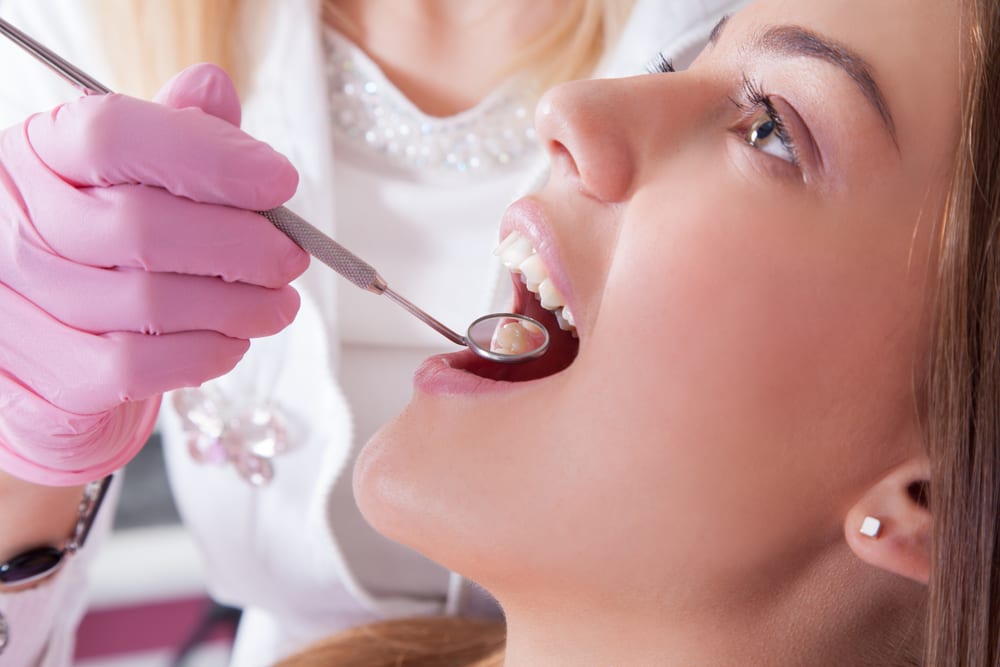Cancer can start anywhere in the body where cells grow out of control. Oral cancer develops in or on the mouth. It is a curable disease when discovered early. Yet, the American Cancer Society (ACS) says fatal cases are on the rise. This may be due to a lack of awareness of oral cancer signs.
According to recent ACS estimates, more than 53,000 Americans will get oral cancer this year. Almost 11,000 of them are likely to die of the disease.
The average age of people with oral cancer is 62, but younger adults can develop the disease. Mouth cancer is twice as likely to affect men than women, and it is equally common in black and white people, according to this dentist in Raleigh.
Early diagnosis and prompt treatment improve a person’s chance of surviving oral cancer. What is more, there are ways to cut down on the risks. Keep reading to learn more about the signs and symptoms, risk factors, early detection and prevention.
Signs and Symptoms of Oral Cancer
Oral cancer can occur in any part of the mouth: lips, gums, tongue, cheeks and the roof or floor of the mouth. It can also occur in the oropharynx, which lies between the soft palate (on the roof of the mouth) and the hyoid bone in the neck.
The signs and symptoms of oral cancer vary from one person to another. Two common signs are mouth sores and mouth pain that do not go away. Other things to watch for include:
- Lumps, growth or rough spots inside the mouth
- Velvety white or red patches inside the mouth
- Unexplained bleeding in the mouth
- Unexplained or constant bad breath
- Loose teeth or a change in the way dentures fit
- Difficulty chewing, swallowing or moving the jaw
- Difficulty speaking or moving the tongue
- Hoarseness, voice changes or sore throat
- Numbness or pain in the mouth, face, neck or ears
- Considerable weight loss
Anyone who notices these symptoms should call a dentist or doctor immediately. The earlier mouth changes are detected, the better.
Risk Factors for Oral Cancer
Oral cancer forms when mouth cells develop changes in their genetic code. These mutations affect cell growth and death. The abnormal cells form a tumor which, in time, may spread inside the mouth and on to other areas of the body.
Mouth cancer usually begins with flat, thin cells called squamous cells. It is not clear what causes the changes in these cells that lead to cancer. But several things increase the risk of getting oral cancer. Here are some examples:
- Tobacco use (cigarettes, cigars, pipes, snuff)
- Heavy alcohol use
- Human papillomavirus (HPV)
- Overexposure to the sun
- A weak immune system
- Age (midlife and older)
- Radiation exposure
- Head and neck cancer
- Poor nutrition
A risk factor is anything that increases the chance of getting a disease such as mouth cancer. Lessening the risks above improve cancer survival and has overall health benefits.
Prevention and Detection of Oral Cancer
There is no proven way to prevent oral cancer, but there are ways to reduce the risk. Stop tobacco use, drink in moderation and protect the lips from sun damage. Eat a healthy diet and practice good oral health habits. Finally, ask a dentist to check for signs of mouth cancer during routine dental exams.
Cancer screening is the first line of defense against oral cancer. Screening involves a visual and physical examination of the lips, face, neck and head. It includes checking soft tissue in the mouth for irregularities and signs of cancer.
A dentist may use lights, dyes and rinses to test for cancer. If this turns up abnormal cells, the dentist collects some of them for biopsy or refers the patient to a doctor.
Blood work, endoscopy and imaging help doctors make a cancer diagnosis. Treatment can follow immediately after a diagnosis. Patients with early-stage cancer generally need less extensive treatment. Moreover, the survival rate is higher.
Coping with Potential Oral Cancer
For those who have signs or symptoms of oral cancer, it can be a confusing time. To cope with the uncertainty, it is important to take control wherever possible. This includes learning about the signs, symptoms and risk factors of mouth cancer.
Anyone with symptoms that worry them should make a dental appointment. This is the first step to dealing with potential cancer. The dentist may make a referral to a specialist such as:
- A doctor who specializes in gum disease (periodontist)
- A doctor who specializes in diseases of the ears, nose and throat (an otolaryngologist)
Appointments are often brief and cover a lot of ground, so it is important to be well-prepared. This includes keeping a list of symptoms, medications and questions for the doctor.
Conclusion
Oral cancer starts in the mouth, but it can spread to the throat, neck and other areas of the body. Since some diseases progress to cancer, it is important to treat precancerous growths.
Continue having checkups to look for new areas of irregularity or disease. And to catch cancer in its earliest stage, get screened for cancer once a year. For more information, contact Dr. Marc Lazare.









